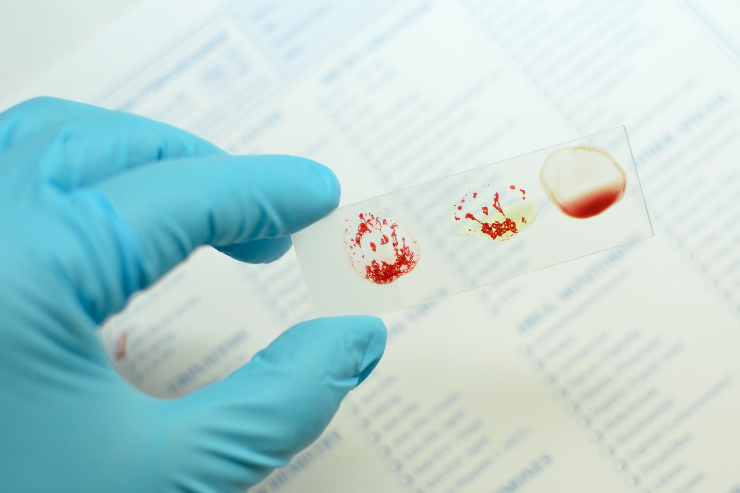
Hematology is the branch of clinical pathology that focuses on the study of blood and blood-related disorders. It plays a critical role in diagnosing and monitoring various conditions affecting blood cells, clotting mechanisms, and bone marrow function.
Hematology tests are essential for:
Diagnosing Blood Disorders: Identifying conditions like anemia, leukemia, and hemophilia.
Monitoring Treatment: Assessing the effectiveness of treatments such as chemotherapy or blood transfusions.
Detecting Infections: Evaluating white blood cell counts to detect infections and monitor immune system health.
Complete Blood Count (CBC): Measures levels of red blood cells, white blood cells, and platelets, providing insights into overall health and detecting abnormalities.
Coagulation Tests: Evaluate clotting factors to diagnose bleeding disorders or assess the risk of excessive bleeding.
Blood Smear: Examines blood cells under a microscope to identify abnormalities in size, shape, or structure.
Bone Marrow Aspiration and Biopsy: Collects bone marrow samples to diagnose blood disorders affecting bone marrow function.
Hemoglobin Electrophoresis: Identifies abnormal hemoglobin variants associated with conditions like sickle cell disease or thalassemia.
Flow Cytometry: Analyzes blood cells for specific markers to diagnose blood cancers like leukemia and lymphoma.
Blood Chemistry Tests: Assess levels of iron, vitamin B12, and other nutrients vital for blood production.
Hematologists are specialized doctors who interpret hematology test results, diagnose blood disorders, and develop treatment plans tailored to individual patient needs. They work closely with other healthcare providers to ensure comprehensive care for patients with blood-related conditions.
Hematology is the branch of clinical pathology that focuses on the study of blood and blood-related disorders. It plays a critical role in diagnosing and monitoring various conditions affecting blood cells, clotting mechanisms, and bone marrow function.
Hematology tests are essential for:
Diagnosing Blood Disorders: Identifying conditions like anemia, leukemia, and hemophilia.
Monitoring Treatment: Assessing the effectiveness of treatments such as chemotherapy or blood transfusions.
Detecting Infections: Evaluating white blood cell counts to detect infections and monitor immune system health.
Complete Blood Count (CBC): Measures levels of red blood cells, white blood cells, and platelets, providing insights into overall health and detecting abnormalities.
Coagulation Tests: Evaluate clotting factors to diagnose bleeding disorders or assess the risk of excessive bleeding.
Blood Smear: Examines blood cells under a microscope to identify abnormalities in size, shape, or structure.
Bone Marrow Aspiration and Biopsy: Collects bone marrow samples to diagnose blood disorders affecting bone marrow function.
Hemoglobin Electrophoresis: Identifies abnormal hemoglobin variants associated with conditions like sickle cell disease or thalassemia.
Flow Cytometry: Analyzes blood cells for specific markers to diagnose blood cancers like leukemia and lymphoma.
Blood Chemistry Tests: Assess levels of iron, vitamin B12, and other nutrients vital for blood production.
Hematologists are specialized doctors who interpret hematology test results, diagnose blood disorders, and develop treatment plans tailored to individual patient needs. They work closely with other healthcare providers to ensure comprehensive care for patients with blood-related conditions.
Ruler Diagnostics Pvt. Ltd, where we prioritize your health and well-being through comprehensive and precise diagnostic services. Our journey began with a shared vision among seasoned healthcare professionals to establish a diagnostic center that combines cutting-edge technology with compassionate care.